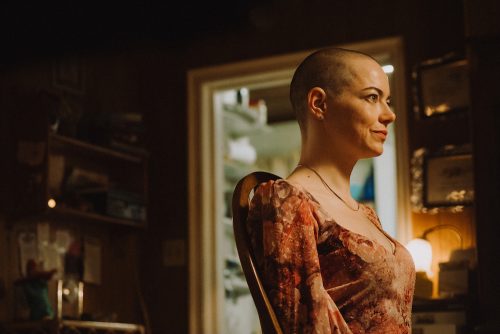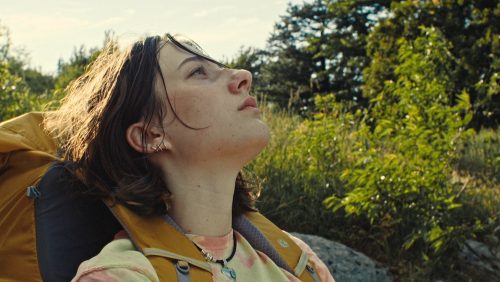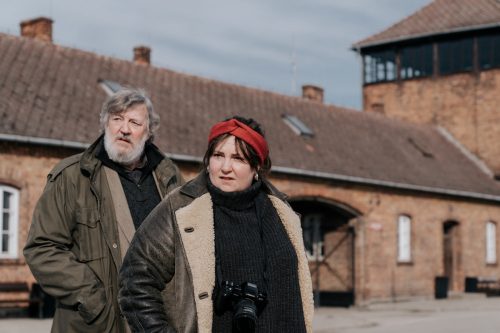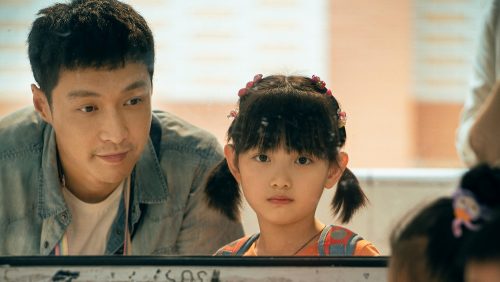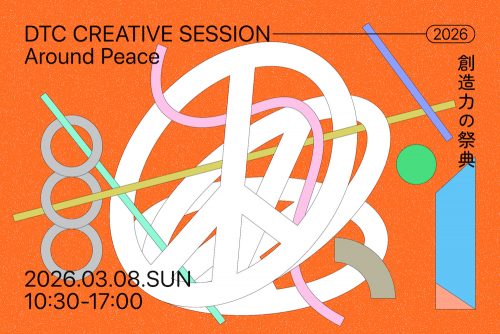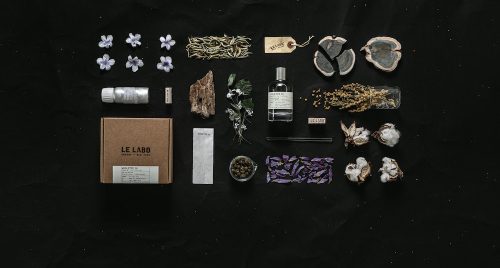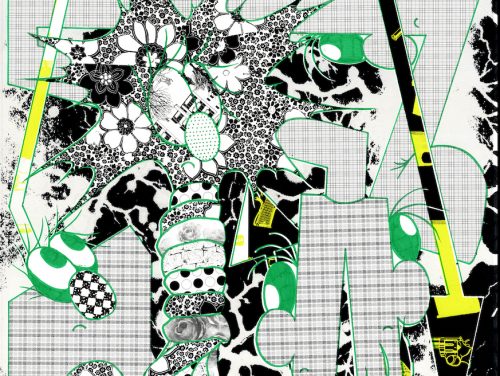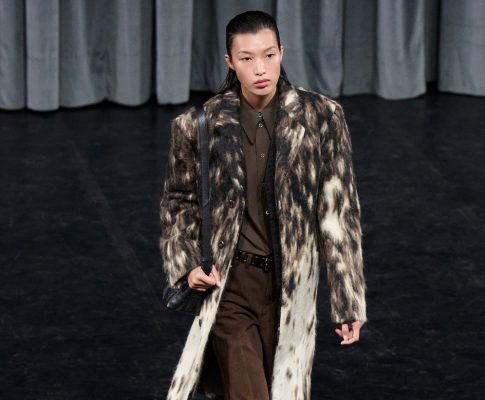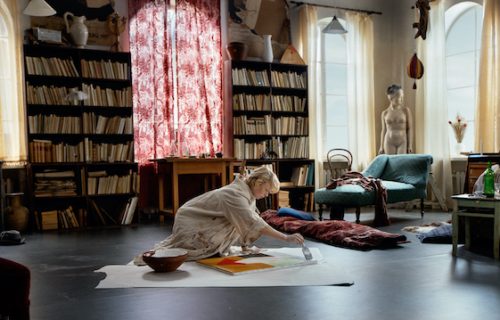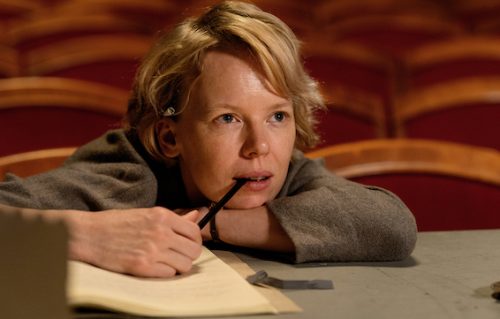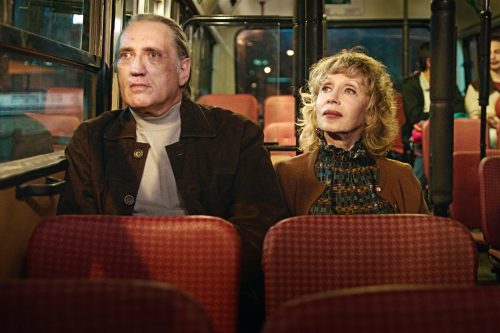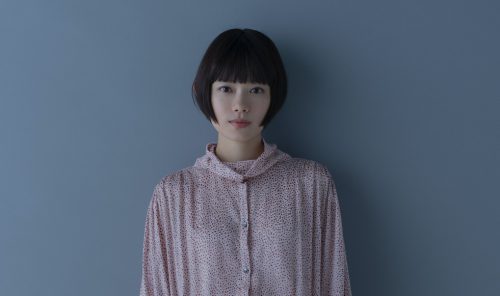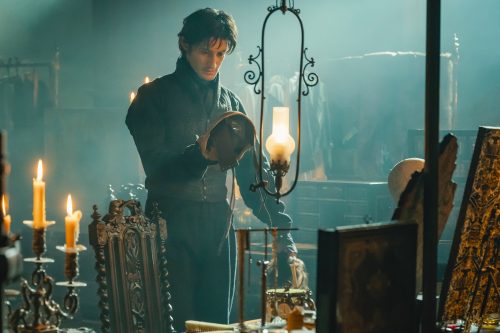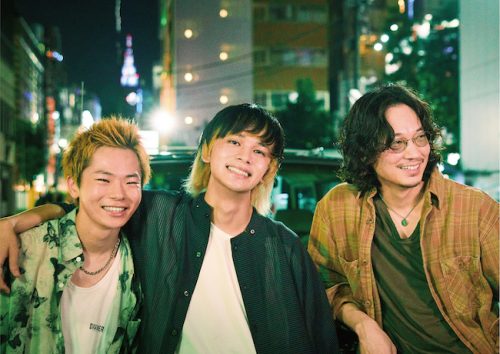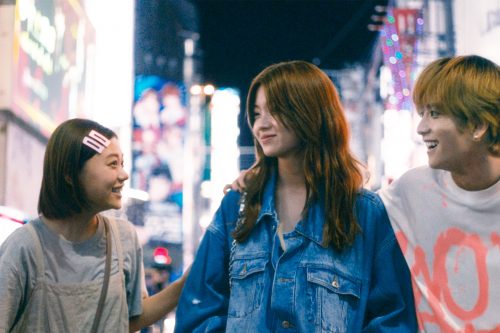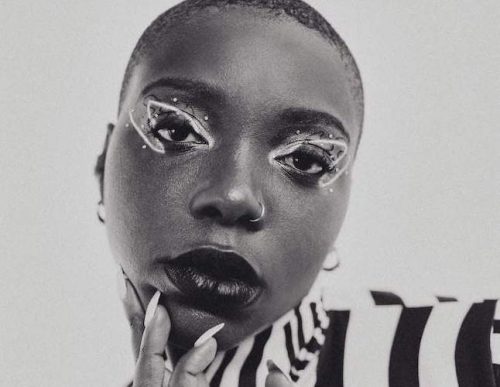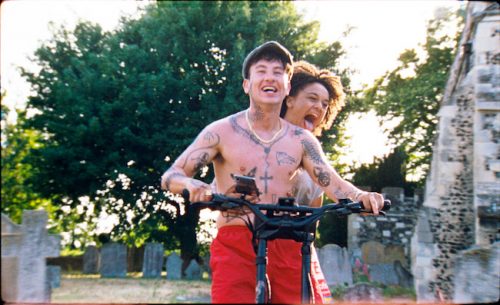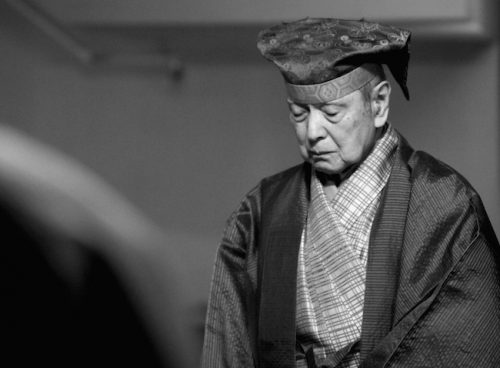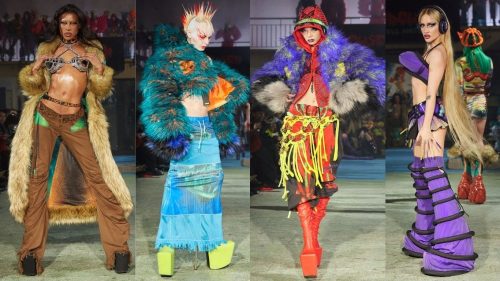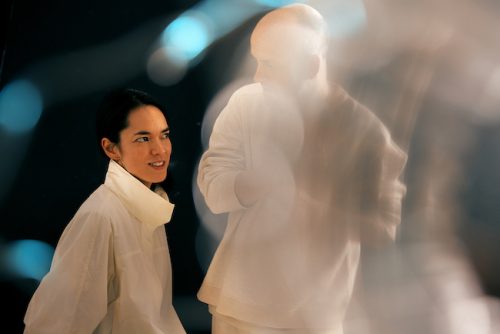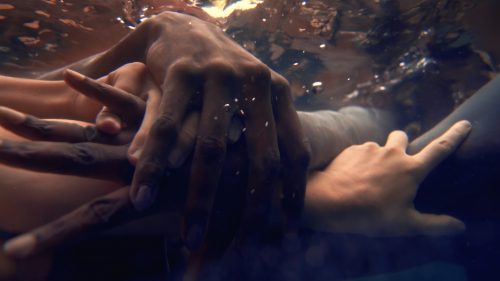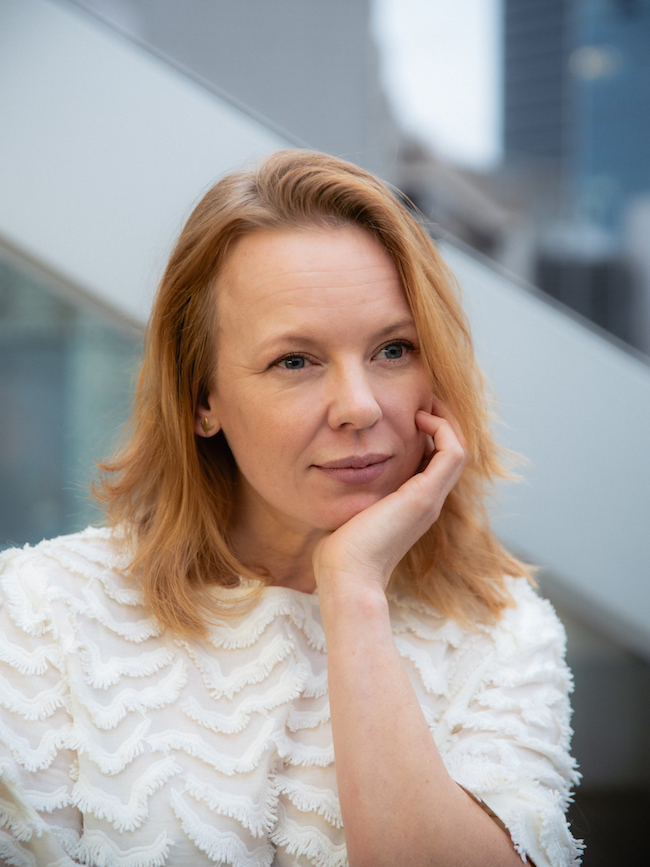
――Welcome to Japan! It was such a lovely surprise when I find out about this film, because I thought that Aki Kaurismäki had retired from filmmaking. How did he approach you for this project?
Alma Pöysti : Thank you! I think that it was a surprise for everybody including himself [laughs.] He got inspired again to make a film. So for me, I got a phone call one day saying, “Aki Kaurismäki would like to meet you. Would you be able to come?” It was such a surreal moment. I did not expect that that would happen to me in a million years. So I went to this lunch, and there he was in real person! I mean, I’ve grown up with his movies. I’ve seen them through my whole life. I even went to his bar and movie theater in Helsinki. I had never met him, but he’d been around always. So there he was. Jussi Vananen, my co-star from the movie, was also there and we had lunch. We talked about dogs. We talked about forest. We talked about politics. But we didn’t talk about the movie. Everybody was maybe a little bit shy at that point [laughs.] But then towards the end, he said that he had this idea for a movie and told us a little bit about the main theme, and asked us if we wanted to be in it. That was another very surreal moment.
――What was your initial reaction like?
Alma Pöysti : I thought it was incredible. It’s really incredible. And of course, yes. I mean, yes! Then a year later, there was a script, and it was a beautiful text. Aki is a man of few words, so it was very short [laughs.]
――He’s a man of few words, but he tells a lot in those few words.
Alma Pöysti : Exactly. They are the right words. And it’s almost like reading poetry, and the descriptions were so fantastic and accurate and exact and funny and touching at the same time. It was all in the script, everything. So I was very impressed and taken by it. And then, a couple of months later, we started to shoot.
――I heard that Aki Kaurismäki has been working with the same crew for 40 years. How was working with him and his crew?
Alma Pöysti : It’s been such a learning experience and it really took us on a ride to old-time filmmaking. It was shot on a 35-millimeter film. They have their own rules and the concentration on the set is amazing. He said to us that he prefers to do it in one take. So almost the whole movie is done in one and only take. At first, it felt terrifying because you have to succeed immediately. Jussi and I, we have been working with digital cameras, multiple cameras, multiple takes forever and ever and ever. One take means that everybody needs to get it right. The light, the props, everything needs to work when that camera rolls.
But then the moment you capture when you understand why it’s actually extremely beautiful idea, because what the camera will see is the first and only time something happens. And then that moment becomes very, very precious. Because as soon as you repeat it, then there’s a little bit of fake in it. So this is a very raw and honest way and aesthetic that you get from it is very rare.
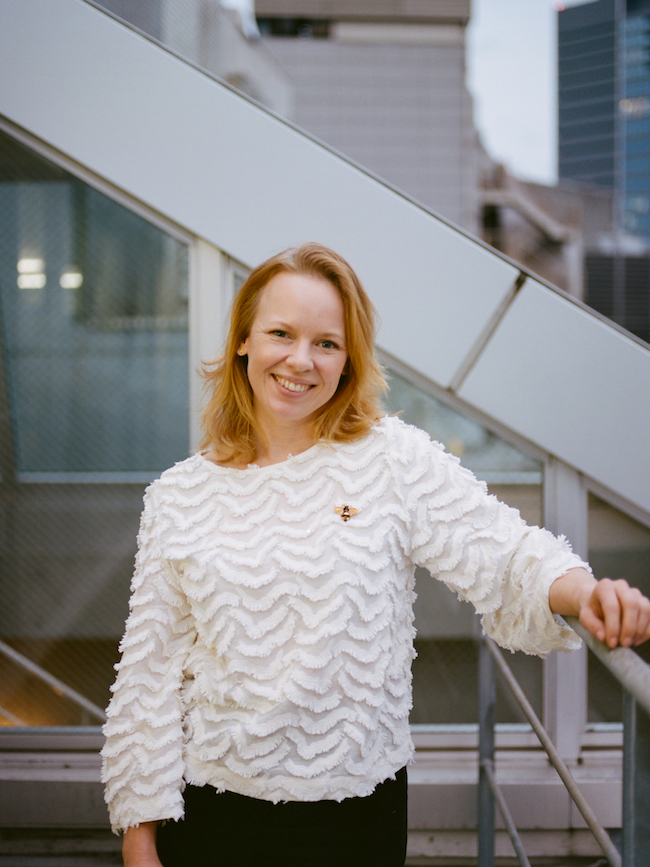
――I really enjoy the silence and calmness in his films, but at the same time, I really like his sense of humor. What is he like in person?
Alma Pöysti : He’s very funny. We call him the sensei of one liners [laughs.] I mean, he’s very focused and he can put on a tough act, but he’s got the warmest, softest heart. He’s such a wonderful person. As I said, on the set, the concentration was very high. And these people have worked so long together that they don’t need to talk, they have secret language somehow. But then someone cracks a joke and everybody explodes and it goes back to this very focused mood again [laughs.] Yeah, you could say that it’s “Akilandia,” Aki’s wonderland.
――How did you prepare for this role? What did you and Aki discuss about who Ansa is?
Alma Pöysti : It’s all in the script, actually. So there was nothing really that even needs to be discussed somehow because he trusts me and I trust him. I mean, you can really trust Aki Kaurismäki because he knows what he’s doing [laughs.] But he said, “please don’t rehearse.” Don’t rehearse before, not together and not alone. Somehow know the lines but don’t spend too much time preparing.
――That sounds difficult.
Alma Pöysti : Yes! And in combination with one take, it’s terrifying [laughs.] So what I did was, because I’m a nerd and I really needed to do something, I rewatched all of his movies. And I felt like maybe Ansa is a distant cousin to some other role in some other films. I thought there needed to be some kind of connection. He now has 20 films, and I’m a small link in this huge body of work. So you need to somehow calibrate yourself not to copy what anyone else has done before. You have to make your own work of course, but there needs to be a thought and a connection to it. So that was at least something I could do.
I also worked a little bit in a bar to get just a feel for it. And I went to the factory and the store where Ansa worked because it felt like those were important places for her and I needed to have them in my system in a natural way so it comes somehow effortless. So these were my small tricks, when you couldn’t rehearse [laughs.]
――It’s interesting to hear that you tried to be a part of his cinematic universe, because I noticed someone from one of his movies in few scenes and felt a connection within his movies. When I saw him, I was like, he’s alive!
Alma Pöysti : Exactly! I’m so happy you noticed that [laughs]
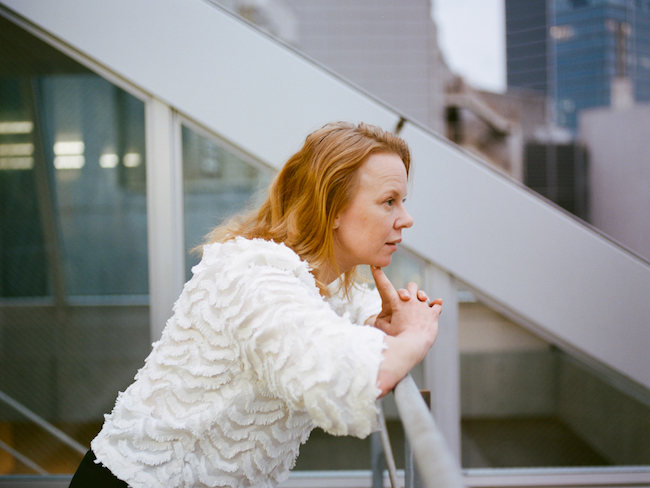
――This film feels very timeless and I thought it’s set in the 60’s or something. Then you hear the news about Russian aggression towards Ukraine from the radio, and you realize that it’s set in today. I thought it means a lot to see a film with such empathy and humanity especially now. How did you perceive this story?
Alma Pöysti : I agree with you. Really. I think that it suggests caring as a counter force for cynicism or exploitation. And it tells that story, in many ways, many forms and shapes of how to care for one another. The other thing is that the love stories are right now what we really need, then we need to also bring them to real life, because that’s where it’s really needed. Also, there is solidarity in this film that I feel is very inspiring. We need to take care of each other better and not only take care of ourselves.
――This is probably the shyest love story that I’ve ever seen. I love the scene where Ansa and Holappa first meet at the karaoke bar without talking for a long time.
Alma Pöysti : It’s so long! [laughs] I agree with you. This is the absolutely the shyest love story I have ever been in. Aki said, “OK, so there is one kiss on the cheek, there is one handshake and one kiss on the forehead. So this is full of passion!” [laughs] The scene in the karaoke bar was one of my favorite scenes to shoot, but I didn’t think it was possible to make it that long! It’s super romantic and at the same time, it’s not sugar, it’s vinegar [laughs.] I don’t know, it’s something else and that’s maybe why you believe in Aki as well, because it’s so brutal and so honest and rough. And at the same time, it’s so human. Completely human.
――There are so many film references in this film. I thought it was so funny how they go watch “The Dead Don’t Die” on their first date. Did Aki tell you why he picked that movie?
Alma Pöysti : No, not really, but it was already in the script [laughs.] Jim Jarmusch and Aki, they’ve been blinking at each other forever. They have this special friendship through the movies as well which is just beautiful. It also feels like Aki is paying a homage to his cinematic gods throughout the movie with these references. I think it’s very beautiful.
――I feel like I want to see it again to check all the posters in the background.
Alma Pöysti : Yes! I’ve seen it now a couple of times and I still see new things. It’s a very simple story but there are so many layers. And what I like about it is that it’s not an elitistic. Some movies are a little bit snobbish that if you don’t know the references, you don’t get the point, but he welcomes everybody. And then if you see some hidden gem, you will have a nice moment, but it’s not the end of the world if you don’t get it. He’s a generous filmmaker in a way.
――Did you guys talk about movies on set?
Alma Pöysti : He constantly talks about movies [laughs.] He is really following movies, literature and music. And not only in a nostalgic way, but he follows everything that’s happening. There’s nothing dusty about his passion for films.
――And the music plays an important role in this film as well. I really loved the girl duo who plays in the bar.
Alma Pöysti: They are called Maustetyttö and it’s a real band. They are fantastic! They are sisters and they write all their own material. They’re very, very popular in Finland and now with this movie, they’re going to different countries and playing. And you know the name of the band, “Maustetyttö” means “Spice Girls” in Finnish. They are the two spices we didn’t know we needed. The sad spice and the depressed spice [laughs.] I think it’s a brilliant name!
――How did they come on board?
Alma Pöysti: Aki was listening to their music. He really follows, he’s awake [laughs.]
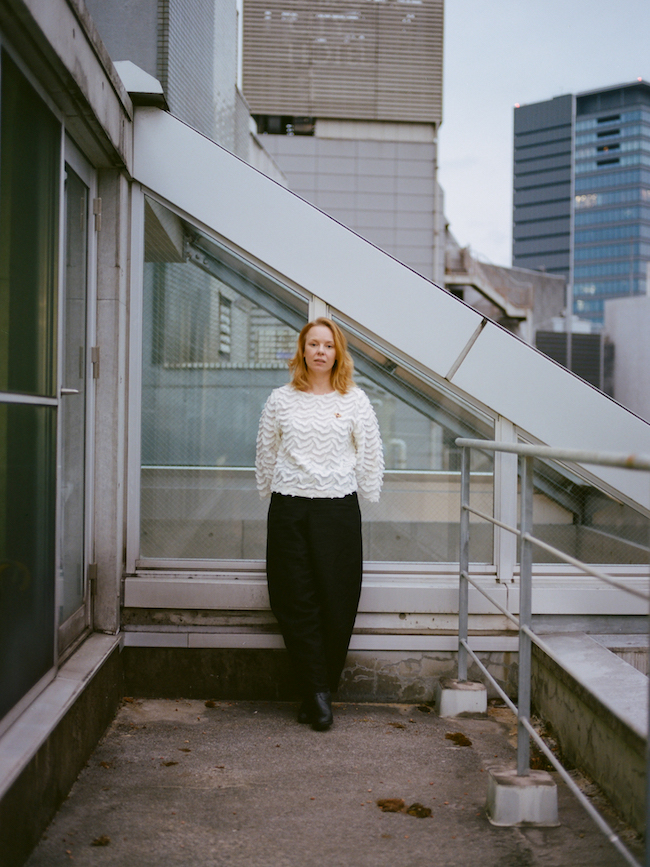
――I can’t help asking you about the dog. Another cute dog in Kaurismäki’s film! I read that her real name is Alma like you.
Alma Pöysti : Yes! We have the same name. It’s destiny. She’s extremely professional. This is her debut and I’m just completely amazed by her talent, her sense of rhythm, the way she’s making strong independent choices in the middle of the shoot [laughs.] I guess you get away with it when you’re the director’s dog. She’s a street dog from Portugal that he adopted.
――This film won Jury Prize at Cannes Film Festival. How was that experience?
Alma Pöysti : That was mind blowing when we premiered there. We were in that big cinema and it suddenly felt so intimate. People were so happy that Aki was back and loved the film and him being there. That was really a strong and beautiful moment, and both Jussi and I were shaking for quite a while afterwards, because it was such a powerful situation.
ーーHow was the reaction?
Alma Pöysti : It was fantastic. People were crying and laughing and really taken by it. And it’s been the same now all over the world. It’s very special to have this kind of talent that Aki has that people can connect to the films no matter where you come from, no matter what language you speak, you find the humor you find the heart, you find the loneliness that you feel with the characters, you connect with them. And it’s very, very hard to do. He is a maestro.
――What was the biggest takeout through working with Aki?
Alma Pöysti : I think I learned a lot about how less is more. And sometimes, how little you need to tell a story. I’m now very interested in how pure you can act. How much can you take away the layers and let the camera in on that? That’s one thing. I think that is very special to him.
There are so many things that I’ve taken away from this project. How he values films and how a film can really matter. It can give someone hope. You can be in a warmer place for 81 minutes and you can even change from watching a movie. And this, he proves somehow very strongly. So that’s something I’m immensely grateful and happy to experience.
Photography Marisa Suda(https://www.instagram.com/marisatakesokphotos/)
text nao machida
